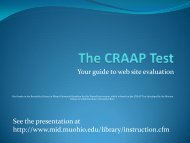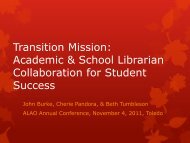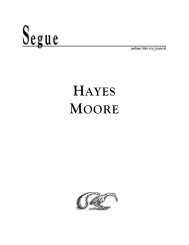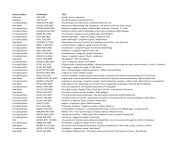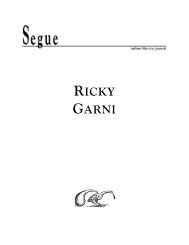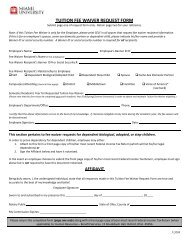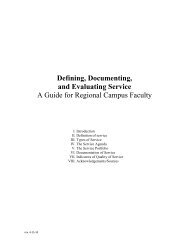Bibliography of Assessment Alternatives: Portfolios
Bibliography of Assessment Alternatives: Portfolios
Bibliography of Assessment Alternatives: Portfolios
Create successful ePaper yourself
Turn your PDF publications into a flip-book with our unique Google optimized e-Paper software.
Hansen, Jane. Literacy <strong>Portfolios</strong>: Helping Students Know Themselves. Located in:<br />
Educational Leadership 49, 1992, pp. 66-68. Also available from: University <strong>of</strong> New<br />
Hampshire, Morrill Hall, Curham, NH 03825.<br />
This short article provides a good idea <strong>of</strong> what a literacy portfolio is and the positive effects<br />
the process can have on students. The author describes a K-12 project in which students are<br />
completely in control <strong>of</strong> what goes in their portfolios, and any rationale is accepted at face<br />
value. The idea is to build self esteem and to help students get to know who they are as<br />
readers. Items from outside <strong>of</strong> school are encouraged. There is also some help in the article<br />
with how to get started and how to promote self reflection. There is no discussion <strong>of</strong> criteria,<br />
but there are some examples <strong>of</strong> what students placed in their portfolios and why.<br />
(AL# 400.3LITPOH)<br />
Hebert, E.A. <strong>Portfolios</strong> Invite Reflection—From Students and Staff. Located in:<br />
Educational Leadership 49, 1992, pp. 58-61. Also available from: Crow Island School,<br />
1112 Willow Rd., Winnetka, IL 60093.<br />
The author briefly describes a portfolio project and alternative progress reporting strategy<br />
used in Crow Island School for grades K-8. Interesting aspects <strong>of</strong> this project include: the<br />
cooperative learning approach undertaken by the staff; the fact that the process <strong>of</strong><br />
examination <strong>of</strong> values became at least as valuable as having the new assessment systems in<br />
place; encouragement <strong>of</strong> student self-reflection in several ways including "Portfolio<br />
Evenings" with parents; and the addition <strong>of</strong> a personal reflection in their reporting form to<br />
parents. There is no mention <strong>of</strong> criteria for assessing progress and no samples <strong>of</strong> student<br />
work.<br />
(AL# 000.3PORINR)<br />
Herman, Joan L. and Lynn Winters. Portfolio Research: A Slim Collection. Located in:<br />
Educational Leadership, October 1994, pp. 48-55.<br />
The author discusses portfolios from a technical viewpoint—does one need to be careful<br />
about using portfolios to make judgments <strong>of</strong> student achievement? What could cause us to<br />
make incorrect judgments? They discuss reliability, validity and feasibility in a fairly<br />
accessible manner. They also point out, as the title suggests, that there needs to be more<br />
work done before portfolios are used to make high-stakes decisions about individual students.<br />
(AL# 150.6PORRES)<br />
<strong>Assessment</strong> Resource Library, (503) 275-9582 37 Portfolio <strong>Bibliography</strong><br />
(formerly Test Center) NWREL, December 1996




